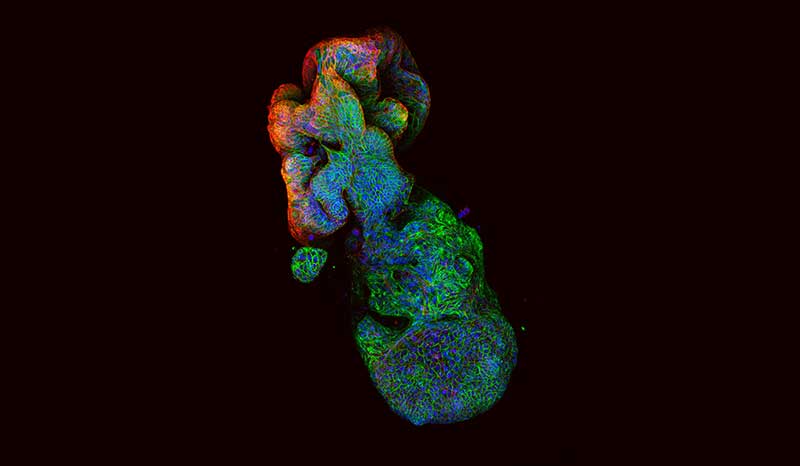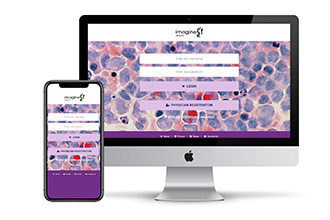Williams C, Inderjeeth A-J, Hong W, McKenzie J, Anton A, Weickhardt A, Wong S, Shapiro J, Parente P, Goh J, Torres J, Smith A, Joshua A, Brown S, Steer C, Johns J, Gibbs P, Tran B, Azad AA. Treatment patterns and outcomes for younger patients with metastatic castration-resistant prostate cancer (mCRPC); An Australian prospective registry study. Clinical Genitourinary Cancer. 2025;23(3):10.1016/j.clgc.2025.102345
Farbotko S, Owen A, Orchard SG, Woods RL, Nelson M, Stocks NP, Tonkin A, Wolfe R, McNeil J, Gibbs P, Zalcberg J, Ryan J. Incidence of major health events across metropolitan and regional areas: A 10+ year prospective study of 16,697 older Australians. Australasian Journal on Ageing. 2025;44(2):10.1111/ajag.70036
Dunn C, Tie J, Gibbs P. A Call for Improved Guidance to Integrate Modern Biomarkers Into Routine Clinical Care—Piecing the Puzzle Together. JAMA Oncology. 2025;11(4):10.1001/jamaoncol.2024.6479
Lahouel K, Douville C, Diergaarde B, Cohen JD, Grant H, Kuo A, Ansari SK, Wang Y, O’Broin-Lennon AM, Popoli M, Ptak J, Silliman N, Dobbyn L, Nehme N, Tie J, Gibbs P, Papadopoulos N, Kinzler KW, Vogelstein B, Schoen RE, Tomasetti C. A Blood-Based Assay for Detection of Patients with Advanced Adenomas. Cancer Research Communications. 2025;5(4):10.1158/2767-9764.crc-24-0398
Shah J, Dunn C, Kim GY, Gibbs P, Gately L. Evaluating current quality indicators used in the care of adult patients with glioblastoma: a scoping review of the literature. Neuro-Oncology Practice. 2025;:10.1093/nop/npaf037
Gibbs P, Abubaker K, Wang D, Feng Z, Hamad J, Liao J, Stroh C, Vlassak S, Heinrich K, Khattak A, Scheuenpflug J. Clinical impact of sub-clonal RAS/BRAF alterations in liquid biopsies from patients with advanced or metastatic CRC. Clinical Colorectal Cancer. 2025;:10.1016/j.clcc.2025.03.004
Drosdowsky A, Lamb KE, Marvelde LT, Gibbs P, Dunn C, Faragher I, Jones I, IJzerman MJ, Emery JD. Factors associated with diagnostic and treatment intervals in colorectal cancer: A linked data study. International Journal of Cancer. 2025;:10.1002/ijc.35414
Tie J, Wang Y, Lo SN, Lahouel K, Cohen JD, Wong R, Shapiro JD, Harris SJ, Khattak A, Burge ME, Lee M, Harris M, McLachlan S-A, Horvath L, Karapetis C, Shannon J, Singh M, Yip D, Ananda S, Underhill C, Ptak J, Silliman N, Dobbyn L, Popoli M, Papadopoulos N, Tomasetti C, Kinzler KW, Vogelstein B, Gibbs P. Circulating tumor DNA analysis guiding adjuvant therapy in stage II colon cancer: 5-year outcomes of the randomized DYNAMIC trial. Nature Medicine. 2025;:10.1038/s41591-025-03579-w
Kim GY, Jalali A, Gard G, Yeung JM, Chau H, Gately L, Houli N, Jones IT, Kosmider S, Lee B, Lee M, Nott L, Shapiro JD, Tie J, Thomson B, To YH, Wong V, Wong R, Dunn C, Johns J, Gibbs P. Initial Assessment of Resectability of Colorectal Cancer Liver Metastases Versus Clinical Outcome. Clinical Colorectal Cancer. 2025;24(1):10.1016/j.clcc.2024.10.001
André T, Shiu K-K, Kim TW, Jensen BV, Jensen LH, Punt CJA, Smith D, Garcia-Carbonero R, Alcaide-Garcia J, Gibbs P, de la Fouchardiere C, Rivera F, Elez E, Le DT, Yoshino T, Zuo Y, Fogelman D, Adelberg D, Diaz LA. Pembrolizumab versus chemotherapy in microsatellite instability-high or mismatch repair-deficient metastatic colorectal cancer: 5-year follow-up from the randomized phase III KEYNOTE-177 study. Annals of Oncology. 2025;36(3):10.1016/j.annonc.2024.11.012






